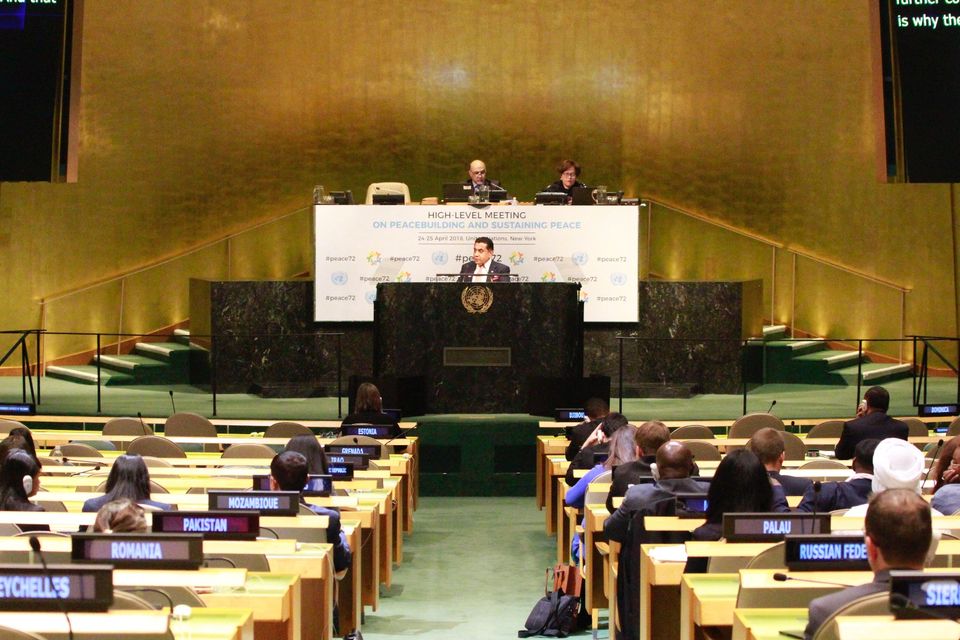UK priorities for peacebuilding and sustaining peace: statement to the UN General Assembly
Minister of State for the Commonwealth and the United Nations Lord Ahmad gave a statement at a High Level Meeting at the UN General Assembly.

Mr President, Excellencies, the world today is experiencing greater instability and a wider range of threats to peace than we have seen for a generation.
The scale of violent conflict, and the desperate human suffering it causes, is immense. If we are to truly realise the ambition of the UN Charter, that said “to save succeeding generations from the scourge of war”, then the need for peace, and the real motivation to prevent further conflict, is as great as ever before.
And that is why the UK very much welcomes Secretary General Guterres’ vision for peacebuilding and sustaining peace, and particularly the renewed focus on conflict prevention, that is set out in the report.
We also fully endorse the idea that sustaining peace should be a shared priority across the whole United Nations system – from peace and security to development and human rights.
We have summarised the key elements needed to successfully sustain peace into four clear and memorable pillars; the 4 ‘Ds’ approach. The first is diversification; diversification of the tools the UN deploys to promote and sustain peace. Secondly, development; more effective development interventions to address the drivers of conflict; Thirdly, diplomacy active diplomacy to de-escalate crises and create the political conditions for long-term peace; and finally the fourth element which is delivery, efficient delivery in partnership with others.
In this regard, the UK has identified 3 key priorities:
Firstly, developing a stronger partnership for peace between the UN and the World Bank. Their combined vision, expertise and global presence are essential to ensure that multilateral investments in development tackle the drivers of conflict;
Secondly, encouraging more preventive diplomacy within the UN, because we all know that political agreements are the bedrock of effective conflict prevention and peacebuilding; and,
Thirdly, we need to ensure smoother transitions to and from Peacekeeping missions in country to other UN entities, through earlier and better and more effective planning.
For the United Kingdom, these 3 priorities are underpinned by our wider commitment to a broader, values-driven, protection agenda.
In that context, the UN’s work to tackle Sexual Exploitation and Abuse and in preventing Sexual Violence in Conflict, efforts are extremely important, indeed for me personally and for our Prime Minister Mrs May, as her personal representative on the issue of Preventing Sexual Violence. The UK plays a leading role on these 2 issues.
And of course sustaining peace is part of the wider UN reform agenda that the United Kingdom also supports.
As we look to the future, we need to be more creative in finding ways to broaden the donor base for peacebuilding, and to deliver more thorough solutions and through the partnerships the UN enjoys with a wide range of organisations.
As a leading contributor to peacebuilding over many years, both politically and financially, the UK stands ready. It stands ready to support the process set out in the UNGA Resolution, so that, together, we can work effectively to sustain peace, and create a world in which future generations are saved from the scourge of war.